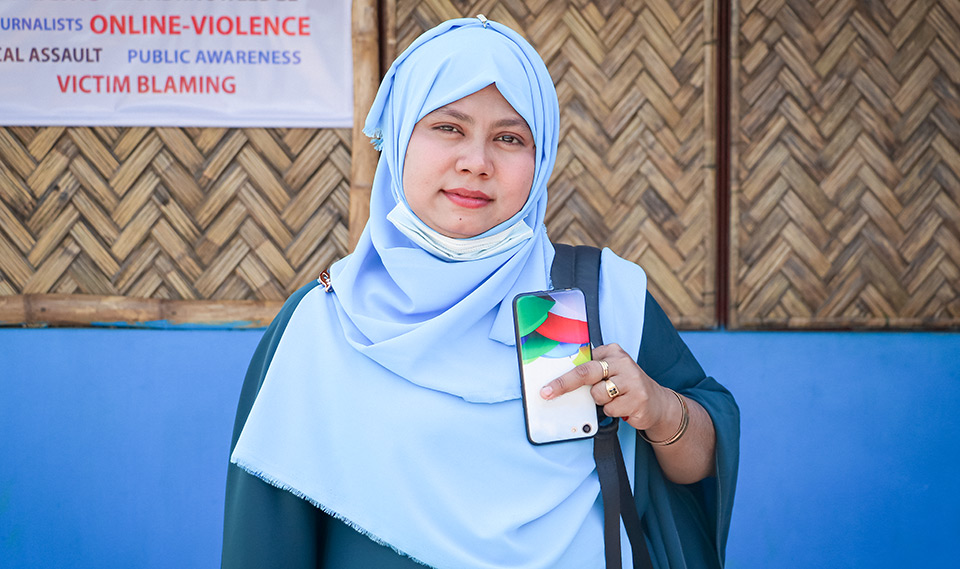In the words of Afruza: “I feel proud to share my knowledge with refugee communities”
Afruza Begum, 32, is a Rohingya refugee and a survivor of the conflict in Myanmar. She fled to Bangladesh with her family in 2017. As a Community Outreach Volunteer in Cox’s Bazar, she is part of a UN Women programme that mobilizes and empowers refugee women to lead and participate in decision-making processes in refugee camps. Volunteers like Begum provide critical information to refugees about preventing gender-based violence and sexual exploitation and abuse, and where to seek help when women and girls experience violence. Volunteers have also become trusted sources of information for Rohingya refugees on COVID-19 prevention.Date:

When I was in Myanmar, I didn’t know much about women’s rights, or protection from sexual exploitation and abuse and gender-based violence. In the refugee camps here in Bangladesh, we [Community Outreach Volunteers] have received trainings from UN Women, UNHCR, the International Organization for Migration (IOM), the Center for Peace and Justice (CPJ) and other non-governmental organizations. Now, we know about gender equality and women’s rights.
During the pandemic, we’ve [Community Outreach Volunteers] been visiting refugee communities and providing vital information about how to keep safe from COVID-19. We also provide information about the risk of sexual exploitation and abuse and gender-base violence. In Rohingya camps, gender-based violence is happening every day. We inform community members about the referral process for gender-based violence cases and we personally refer some cases to UN Women gender field officers.
"Child marriage is one of the key issues in Rohingya camps. Many refugees don’t know about the [legal] age limit for marriage."
In the beginning, we faced challenges while working in the community. People did not respect us; they did not want to listen to us. But now they are changing. People started respecting us and paying attention to our sessions. The pandemic has brought on many challenges to our work. We cannot arrange large sessions due to restrictions. However, we are providing one-on-one sessions in households while wearing masks, maintaining social distance and following hygiene rules.
We also educate refugee women and girls on women’s rights and empowerment. Child marriage is one of the key issues in Rohingya camps. Many refugees don’t know about the [legal] age limit for marriage. We inform them about the laws and serious consequences of child marriage. Even though some parents did not actively engage in our sessions, we did not give up. We still organize sessions and discuss the negative consequences of child marriage in the society as well as the risks for their daughters.
Women have been the most impacted by this pandemic. Their domestic work has increased, and gender-based violence has become a shadow pandemic. I feel proud and lucky that I’ve received trainings and can share my knowledge with refugee communities. Without our support, they wouldn’t have known about their rights, about sexual exploitation and abuse, gender-based violence, child marriage and many other issues we inform them about.”